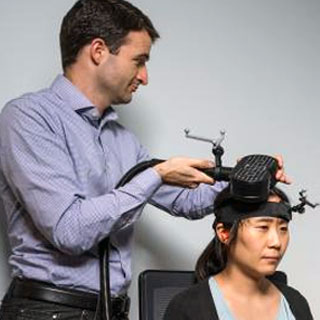Undergraduate Degree in Psychology Overview
In addition to its state-of-the-art laboratories, Georgia Tech’s undergraduate psychology degree program offers several key advantages:
- A technically oriented curriculum that emphasizes quantitative and experimental approaches to the study of behavior. This strong emphasis in the sciences and mathematics provides excellent preparation for graduate school.
- Undergraduate research opportunities. Students have the chance to conduct research with world-renowned professors working at the forefront of the science of psychology.
- Small size. Limiting our program size provides our students and researchers with a more personalized and focused learning experience.
As a Psychology major, you will develop a competence and knowledge of quantitative and experimental approaches to studying the mind and human behavior.
BS Psychology Degree Concentrations and Options
Concentrations
Customize your curriculum plan to match your specific interests and career plans.
- Build a business perspective into your degree without adding the hours required for a minor. Learn about the Business Option.
Options
Increase your competitiveness for jobs and graduate school by adding a designation to your degree.
- Pursue an in-depth, long-term research experience. Learn more about the Research Option.
- Prepare for a global career. Learn more about the International Plan.
Bachelor's Degree in Psychology Requirements
The requirements include core classes in cognitive, social and industrial/organizational psychology; fundamental courses in biology, chemistry, and calculus; electives to explore areas in greater depth including cognitive neuroscience and behavioral pharmacology; and undergraduate research. Download a sample undergraduate course schedule.
Course Highlights
- Biopsychology: Neurophysiological, endocrinological, and biochemical bases of sensory and motor functioning, motivation, learning, memory, and behavior dysfunction.
- Social Psychology: Consideration of the behavior of individuals in social contexts, including interpersonal and group settings.
- Human Sensation and Perception: An examination of human sensory systems and perceptual processes.
View the general Bachelor of Science in Psychology course requirements
Rankings and Awards
Georgia Tech’s School of Psychology faculty members are frequently recognized for their outstanding contributions to their fields. Examples of such recognition include:
- The National Science Foundation appointed Lizanne DeStefano as one of 18 inaugural members of its STEM Education Advisory Panel.
- Professor Phillip Ackerman served as the President of the International Society for the Study of Individual Differences (ISSID) until 2019.
- Assistant Professor Thackery Brown received the 2016 NARSAD Young Investigator Award, from the Brain and Behavior Research Foundation.
- Professor Randall Engle was awarded the 2017 Association for Psychological Science Mentor Award.
- Professor Bruce Walker was appointed General Advisory Committee Member and Technical Format Review Advisory Committee Member for DIAGRAM Center.
See more awards, honors, and grants
What Can You Do with a Degree in Psychology?
Many students with the B.S. degree in Psychology choose to enter a variety of fields including academic research, education, law, medicine, marketing, human factors, system design, personnel selection and training, and management.
- Psychology Professor
- Clinical Psychologist
- Lawyer
- Market Research Analyst
- Training and Development Specialist
What Are Georgia Tech Graduates Doing Now?
They are:
- Professor of psychology.
- Principal investigator at Soar Technologies.
- Talent consulting analyst at Mercer Inc.
- Faculty member at a private K-12 school.
- Practicing medicine and nursing.
Psychology Research for Undergraduates
Undergraduates can get involved with research in three different ways:
- Working as a research assistant.
- Conducting a senior thesis.
- Participating in summer workshops and internships
Beyond the Classroom
- Go beyond the lecture hall and see psychology in the real world. Join the Psychology Club or the Human Factors and Ergonomics Society.
- Learn about undergraduate research opportunities for first-year students. Apply to reside in the Science and Mathematics Research Training Living Learning Community.
- Gain employment experience and benefit from real-world experience in your field. Learn more about the Co-op Program and internships.
- Learn more about study abroad opportunities led by College of Sciences faculty.
Stories from the School of Psychology

Meet Dar-Wei Chen: Ph.D. in Psychology

Why Choose Georgia Tech for Graduate School?

Chris Stanzione Receives Award for Excellence in Teaching

Brain Mechanisms Create Confidence About Things Seen
Related Degrees
Related Websites
Next Steps
(text and background only visible when logged in)